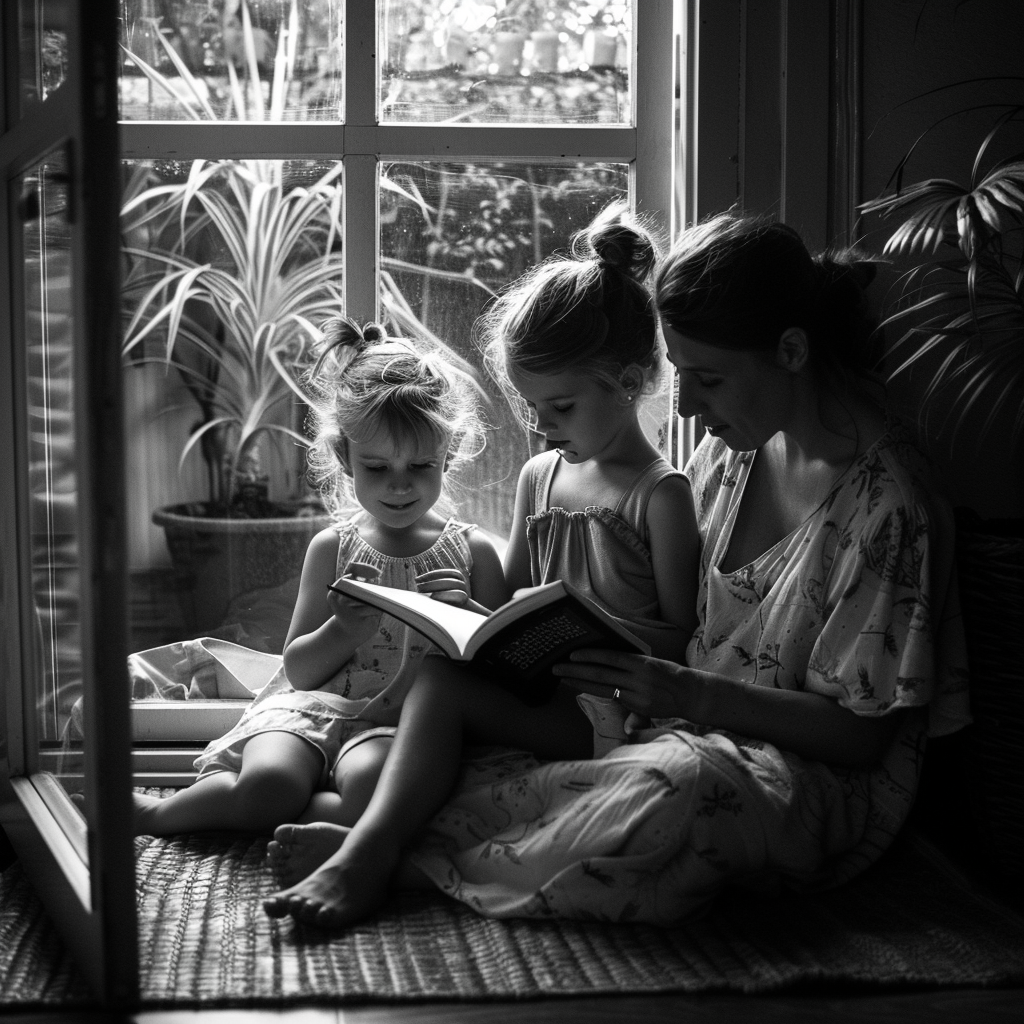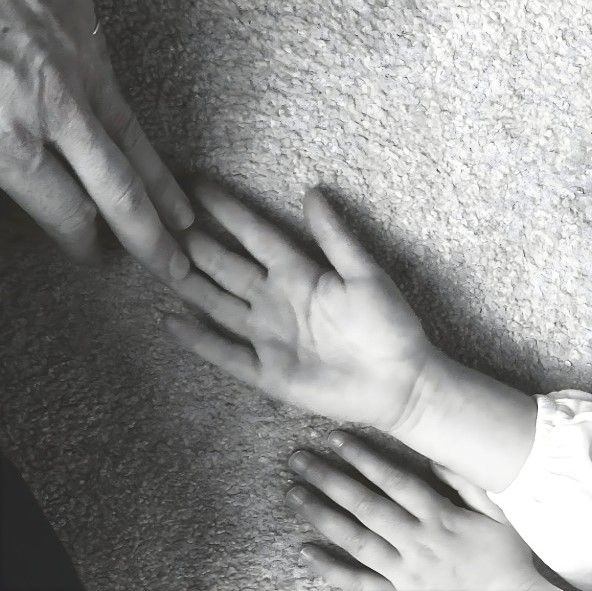
MENU


At Lifeverse, we think about attention constantly. We are a group of experts with different degrees and experiences, collectively fixated on this concept: What is attention exactly? How do we define it? How do we measure it? How do we quantify it? Can we protect it? Increase it? Share it with the world? We are scientists after all, and good scientists ask good (and oh so many) questions.
This week, though, through the many conversations I had with our engineers, educators, researchers, and thinkers, through the examples they gave and the thought experiments they casually sprung up, this little poetic idea kept coming back to me: Attention, beyond academic papers, brain markers, machine learning models, and complex conceptual boundaries (more on those in other posts!), ultimately is love – love we may give to ourselves, and love we may give to others.
What happens when we carve out the conditions for ourselves to be fully attentive? When we create an environment that allows complete immersion, concentration, flow? Suddenly, food is tastier, colors more intense, and music more captivating. Suddenly, our mind can do its impressive gymnastics in peace, those it is usually craving, but too overwhelmed to perform: we relate concepts, solve problems, understand mysteries. This is akin to the logic of meditation; of being present, of being aware. It is akin to ideas of self-love; not the commercial, consumerist ideas of loving oneself by purchasing products; but a deeper self-love; one that rests on attending, even if briefly, totally and without distraction, to our own thoughts, our own reflections, to our own internal theatre. The French philosopher, Alain Badiou, in one of my favorite quotes of his, likens the feeling of being happy in love to the “almost supernatural joy you experience when you at last grasp in depth the meaning of a scientific theory.” I am increasingly convinced that only by giving ourselves true attention, can we experience this (self-)love, and can we experience this supernatural joy.

The logic extends, I believe, to the love we give to others. What is the common denominator between a parent patiently listening to their child’s ramblings, a friend rushing to your house with ice cream and the promise of a long conversation when you have had a bad week, and a romantic partner asking you to tell them about your day, patiently and kindly? Attention – the parent, the friend, and the partner, in immensely different ways but with the same underlying commitment, are choosing to give you their full and undivided attention. Is there a way to give others love, without this cognitive prerequisite? Without this effortful act of shutting out distractions and centring the ones we care about? As if the world around them blurs and they are, in that moment, the only relevant recipient of our senses, our focus, our being? I am also increasingly convinced that the answer is no, that only by giving others true attention, can we give them love.
So, as I go back to technical definitions, physiological correlates, and algorithmic specifications, I hope I can remember, and I hope you will agree with me, that to be in the business of exploring attention, is to be in the quest for the human capacity to love: to love ourselves, and to love others.
Every week, we will post a short blog relating to the concept of attention, the latest scientific developments around it, or our updates about our own progress here at Lifeverse!
 Sign up to the blog
Sign up to the blog
If you have an interesting idea that relates to attention, or if you do research on attentional processes and would like your work to be featured on our blog, please reach out - we are always happy to collaborate with brilliant minds from across fields and disciplines!
 Pitch us an idea!
Pitch us an idea!



Distractions were crucial for the survival of our species, helping us react quickly to potential dangers. However, in today’s world, constant notifications hinder our ability to maintain prolonged concentration. In this article our expert emphasizes Cal Newport’s concept of a “deep life” about the importance of focusing on tasks with minimal distractions, whether it’s work or personal activities.
Our working memory, powered by the prefrontal cortex, is essential for planning, organizing, and reasoning. Despite this capability, we often fall short of our goals due to interruptions like notifications. The author shares a personal experiment of limiting WhatsApp usage to reduce stress and improve presence with their daughters, and highlights the importance of managing distractions to enhance productivity and presence.



This article explores the unique types of attention parents develop, particularly those dedicating substantial time to their children. Identifying two distinct attention modes—focused and rote—the author reflects on the challenges and engagement levels associated with each. Drawing from personal experiences, the author discusses the pursuit of achieving a state of “flow” with one’s children, akin to the immersive state described by psychologist Mihaly Csikszentmihalyi.
The narrative also touches on concerns about diminishing self-regulation in a screen-dominated world, referencing a study’s findings on the impact of screens on children’s self-control.



In this new article our expert reflects on the natural parental fear of their child falling ill and shares a shift in perspective towards sickness. Instead of solely worrying, our expert sees it as an opportunity to listen to their body, be present in the moment, and understand the concept of care.




We shared a personal experience with a five-year-old children, exploring the art of observation and learning through a simple carrot. Embracing Feynman’s approach and impactful lessons from “What Do You Care What Other People Think?”, we aimed to make learning enjoyable and engaging. We highlighted the significance of understanding beyond names—embracing the curiosity to observe and explore. Join us on this incredible journey of exploring the wonders of how the brain learn!




The statements “Everyone knows what attention is” (James, 1890) and “No one knows what attention is” (Hommel et al., 2019) may seem contradictory, but they can coexist. William James refers to a common, intuitive understanding of attention, seen in everyday phrases like “give me attention.”
On the other hand, Hommel and colleagues highlight the evolving and sometimes contradictory scientific accounts of attention. While lay individuals agree on what attention is, scientists can have ongoing debates.




How can caregivers master the art of observing children? What can we learn by simply following a child’s natural instincts and development? And how does that challenge traditional approaches to education?
This blog post offers some thoughts and reflections from parents, a Montessori guide, and a paediatric neurologist on these questions!


Distractions were crucial for the survival of our species, helping us react quickly to potential dangers. However, in today’s world, constant notifications hinder our ability to maintain prolonged concentration. In this article our expert emphasizes Cal Newport’s concept of a “deep life” about the importance of focusing on tasks with minimal distractions, whether it’s work or personal activities.
Our working memory, powered by the prefrontal cortex, is essential for planning, organizing, and reasoning. Despite this capability, we often fall short of our goals due to interruptions like notifications. The author shares a personal experiment of limiting WhatsApp usage to reduce stress and improve presence with their daughters, and highlights the importance of managing distractions to enhance productivity and presence.
Label
17-05-24

This article explores the unique types of attention parents develop, particularly those dedicating substantial time to their children. Identifying two distinct attention modes—focused and rote—the author reflects on the challenges and engagement levels associated with each. Drawing from personal experiences, the author discusses the pursuit of achieving a state of “flow” with one’s children, akin to the immersive state described by psychologist Mihaly Csikszentmihalyi.
The narrative also touches on concerns about diminishing self-regulation in a screen-dominated world, referencing a study’s findings on the impact of screens on children’s self-control.
Label
06-03-24

In this new article our expert reflects on the natural parental fear of their child falling ill and shares a shift in perspective towards sickness. Instead of solely worrying, our expert sees it as an opportunity to listen to their body, be present in the moment, and understand the concept of care.
Science

29-02-24

We shared a personal experience with a five-year-old children, exploring the art of observation and learning through a simple carrot. Embracing Feynman’s approach and impactful lessons from “What Do You Care What Other People Think?”, we aimed to make learning enjoyable and engaging. We highlighted the significance of understanding beyond names—embracing the curiosity to observe and explore. Join us on this incredible journey of exploring the wonders of how the brain learn!
Science

06-02-24

The statements “Everyone knows what attention is” (James, 1890) and “No one knows what attention is” (Hommel et al., 2019) may seem contradictory, but they can coexist. William James refers to a common, intuitive understanding of attention, seen in everyday phrases like “give me attention.”
On the other hand, Hommel and colleagues highlight the evolving and sometimes contradictory scientific accounts of attention. While lay individuals agree on what attention is, scientists can have ongoing debates.
Science

12-01-24

How can caregivers master the art of observing children? What can we learn by simply following a child’s natural instincts and development? And how does that challenge traditional approaches to education?
This blog post offers some thoughts and reflections from parents, a Montessori guide, and a paediatric neurologist on these questions!
Science

13-12-23
If you have an interesting idea that relates to attention, or if you do research on attentional processes and would like your work to be featured on our blog, please reach out - we are always happy to collaborate with brilliant minds from across fields and disciplines!
 Pitch us a blog idea!
Pitch us a blog idea!
Every week, we will post a short blog relating to the concept of attention, the latest scientific developments around it, or our updates about our own progress here at Lifeverse!
 Sign up to the blog
Sign up to the blog